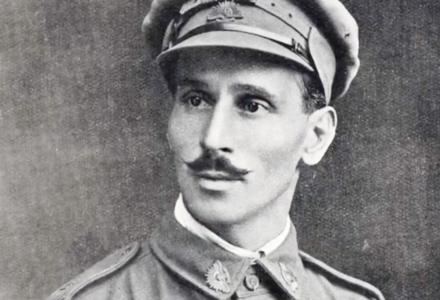In the early hours of 25 April 1915, Private Joseph O’Grady, of the 9th Battalion, landed on Gallipoli. We don’t know how far Private O’Grady advanced that first day. Nor, in all probability, did he. O’Grady was severely wounded, taken back to the beach and evacuated. His arm was amputated below the elbow and he languished, in squalid, overcrowded hospitals in Egypt, for months before they sent him home.
Home was Brisbane—but it hadn’t always been. Joseph O’Grady was born in Limerick, Ireland. He’d served with the 1st Battalion Royal Munster Fusiliers, fought the Boers in South Africa, and taken part in the Indian Frontier War.
A different kind of battle awaited O’Grady on his return to Australia. Prior to leaving Brisbane, he had worked splitting timber and earned sixteen shillings a day. But with only one arm, he could no longer swing an axe, and anything but ‘light work’ was beyond him. O’Grady was granted a partial pension and expected to live on twenty-two shillings a week.
Some doctors were sympathetic—who could dispute the loss of a limb? But others were suspicious of O’Grady’s ‘habitual’ drinking. His health steadily worsened; his artificial arm blistered his skin, and even the weight of an overcoat was painful to bear. O’Grady’s attempts to supplement his pension proved unsuccessful. ‘Owing to my physical condition I am unable to do any work,’ he told the pension board in 1922, ‘[and my] future prospects of earning are nil.’
By that time, O’Grady had a wife and child to support. But he suffered pains in his back and chest, persistent headaches and giddiness, and was obliged to rest after the slightest exertion.
A man who had served as a soldier for a third of his life, and who’d been amongst the first ashore at Anzac, was struggling with both his physical and mental wounds by the time the Second World War broke out.
In June 1943, Joseph O’Grady fell backwards from a tram and slammed his head against the gutter. His wife Ethel—assuming her husband was drunk—put him promptly to bed. The next day she was unable to rouse Joseph and he was taken by ambulance to the Brisbane General Hospital. He died a few hours later.
Ethel claimed her husband suffered much from his wounds and that his death was due to his war service. But a drunken Irishman was not the stuff of heroes, especially not as a new generation of men gave their lives for the Empire. The cause of death was recorded as ‘Injury to brain and skull, alcoholism’, and NOT DUE TO WAR SERVICE was stamped firmly on Private Joseph O’Grady’s papers.
Joseph O’Grady’s story reminds us of the conflicted loyalties of the Irish. Though Joseph elected to serve the British Empire, many other members of his family did not. Indeed, several near and distant relatives supported the Irish Republican Army and rebellion against British rule. The civil war in Ireland also found the O’Grady family divided, some supported Sinn Féin and Éamon de Valera, others the nationalist forces of Michael Collins. At another level, this story raises the broader question of how that loyalty to the British was rewarded. Like thousands of other returned men, Joseph O’Grady drank heavily on his return to Australia, he found his pension inadequate to support his family, and struggled to cope with war-related disabilities. Whether O’Grady faced discrimination, and how much the hostile attitudes of doctors had to do with his Irish descent is a matter of conjecture. But the case does highlight sectarian divisions across the Empire, both during the war and long after it.



